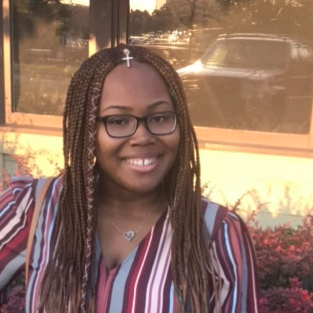by Kianna Goss
Black women often do not feel comfortable at Predominantly White Institutions—but there are solutions to the problem.
After attending a diverse elementary and high school back home in Chicago, attending Bradley University—a predominantly white institution (PWI)—was a shift. The concept of feeling like I “belonged” was a little challenging. If you are a Black woman at a PWI, there is importance in finding those comfortable spaces to reduce isolation. This is meant to be a guide to Black women in the same situation, and a perspective for those who do not understand the issues we face.
The first challenge of being a Black woman at a PWI is trying to avoid being the “voice” for all underrepresented communities. When you attend a mid-size or small school, there is a strong chance of you being the only Black woman in the class. So, when professors in sociology or anthropology courses ask about any racial stereotypes, racial injustices, or any perspective of societal issues—you sit there thinking about whether you should share your perspective or stay quiet. If you are always the one speaking up, it is not your responsibility to be the voice for people of color. It is important for individuals who are not knowledgeable about social injustices to educate and inform themselves outside of the classroom.
Another challenge you may come across is feeling like you have to prove yourself to your white peers. In classroom settings, there will be that one student who thinks they are smarter than you. From experience, I have had a classmate who ignored my ideas when working on a group project because he believed his way was better. The most important thing to do in a situation similar to this one is to be vocal and continue giving input. You know more than what they may expect you to know.
If you are experiencing difficulty adjusting to the new environment or feel isolated, one solution is to find support groups. At the majority of PWIs, there are Black student groups. Other Black students know the feeling of uncertainty and questioning of belonging on campus.
Vox ATL writer Kyra Rogers says, “There’s no place for Black girls at a PWI, so you need to find your people.” She adds, “You can join a Black Student Union, join clubs and teams, and even start your own if you need a safe space to be unapologetically Black.”
Spaces like those mentioned above allow Black women to share similar stories with other students who may understand the feeling of being lonely and an outcast. They are also useful for giving tips on how to handle yourself in a situation when you might feel discriminated against or connect you back to your culture.
Another solution to reducing isolation as a Black woman at a PWI is to embrace your identity. Oftentimes, you may feel like you are being judged for using slang, wearing your natural hair, or just being yourself. Merry Nebiyu, a writer for Her Campus said, “Finding Black women through TikTok who unapologetically loved themselves and their identities while embracing their Blackness challenged me to let go of my need to have my choices be dictated by these negative stereotypes.”
So, remember: As a Black woman at a PWI, it’s okay to be yourself, be vocal, and find/ create safe spaces to express issues within your institution. If you are not a Black woman or student, remember to educate yourself on issues that occur in underrepresented groups on campus. Also, don’t be afraid to attend Black student seminars to learn how they feel at a PWI and gain a new perspective.
About Kianna Goss

Kianna Goss is a junior at Bradley University, majoring in journalism with a double minor in sociology and advertising with public relations. Community involvement requires the use of one’s voice; in Goss’s case, her voice, which she expresses through writing, is one of the strongest platforms she has. Being a Black woman, Goss often writes to give a voice to the Black community. In doing so, she gains control over a media narrative that portrays the Black community in a negative way. As a writer who expresses herself through many different forms expressions, she has written poetry, blogs, newspaper articles, and opinion pieces. She is always looking for more opportunities to grow as a writer and personally. Goss is involved in many organizations at Bradley University. She is currently the marketing/ communications director for Bradley’s Communication Agency, a peer mentor for the Office of Diversity and Inclusion, a writer for the student newspaper The Bradley Scout, and a caller at the Bradley Fund. Being able to explore her creativity is what Goss loves most about Bradley. The Communications department is molding her into the journalist she aspire to be.

